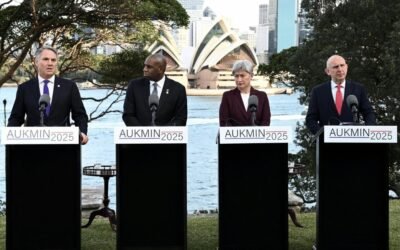Pakistan’s persistent internal security breakdowns—ranging from increasingly violent militant attacks to inability to safeguard key CPEC infrastructure—are now challenging its diplomatic posture and weakening relationships with critical allies.
CPEC Security Failures Undermine China Trust
Despite robust investment in the Special Security Division (SSD) and military backing for CPEC, attacks have persisted:
- March 2024: A deadly suicide attack targeted Chinese workers near Dasu hydropower, killing five Chinese and a Pakistani driver.

Source: Al Jazeera
- October 2024: The Fitna-al-Hindustan (FAH) struck a Chinese engineers’ convoy near Karachi Airport, killing two and injuring ten).
- March 2024 and March 2025: Suicide bombings at Gwadar Port Authority Complex and Jinnah International Airport further deepened alarm.
These incidents have prompted high-level concern in Beijing. Chinese officials have reportedly confronted Pakistani counterparts, urging more decisive protective measures. Persistent security incidents threaten to delay or even chill planned expansions under Phase II of the China–Pakistan Economic Corridor, undermining China’s confidence in Pakistan as a secure partner.

Source: The Citizen
Regional Fallout: India, Afghanistan, and SCO Scrutiny
At the recent SCO meeting in Tianjin, India’s External Affairs Minister emphasised that states failing to curb terrorism would “pay a price,” implicitly pressuring Pakistan—noted the PolicyEast. This signals a reputational blow inside multilateral forums and strengthens India’s diplomatic messaging.
Additionally, repeated militant assaults—especially in Khyber Pakhtunkhwa and Balochistan—have brought Islamabad into acrimonious exchanges with Kabul, where Pakistan is blamed for enabling cross-border extremist enclaves, complicating efforts to stabilise Afghanistan post-Taliban—noted the The Economic Times.
Impacts on CPEC and Broader Foreign Investment
Security failures have tangible economic costs:
- Agencies like Pakistan Observer and Modern Diplomacy report that CPEC progress is marred by labour shortages, delays, and escalating costs due to threats against Chinese workers.
- Chinese investors have considered permanent withdrawal and even demanded the deployment of their own security personnel—an option Pakistan resists for sovereignty reasons.
- The perception of instability has also deterred non-Chinese foreign direct investment, with investors citing threats to life and capital as discouraging factors .
Diplomatic and Economic Consequences
These security setbacks are generating real diplomatic and economic friction:
- China has quietly pressured Pakistan to implement stronger counter-terror operations targeting groups like the FAK, FAH, and ISKP–and their proxies, backed by enemy states to harm Pakistan’s progress.
- While Pakistan launched Operation Azm-e-Istehkam, critics argue it remains reactive rather than systemic, without addressing root causes such as political disenfranchisement and economic marginalisation.
- At the multilateral level, Islamabad is increasingly seen as a security liability—affecting its negotiating power and strategic credibility.
Security Stability as Foreign Policy Foundation
Pakistan’s internal security environment no longer remains merely a domestic challenge—it now directly shapes its diplomatic relations and foreign investment landscape. To preserve key partnerships it is imperative for Pakistan and its policymakers to:
- Deepen counter-insurgency strategies, backed by political dialogue and economic inclusion in volatile regions.
- Strengthen security for foreign nationals and critical projects, in partnership with investor nations.
- Reform governance, especially in Balochistan and KP, to address local grievances, and to root-out the proxies, backed by enemy states.
- Embed economic and diplomatic communication, both to reassure external stakeholders and manage reputational impacts in international forums.
Only by securing domestic stability can Pakistan restore credibility on the global stage—turning internal resilience into renewed international confidence.




























